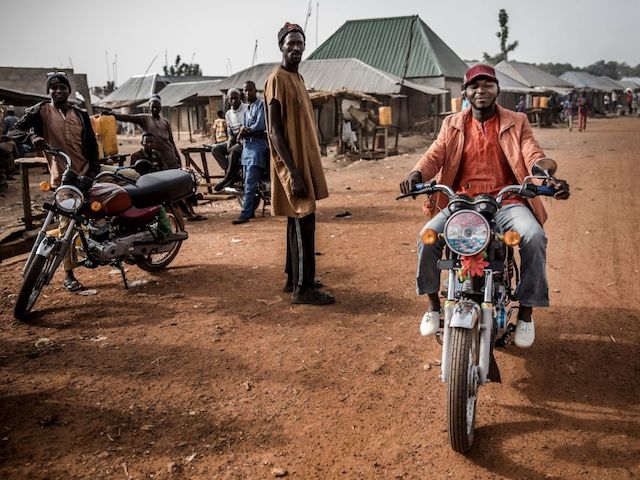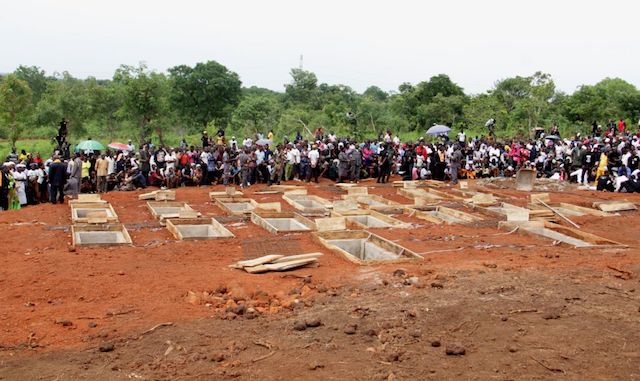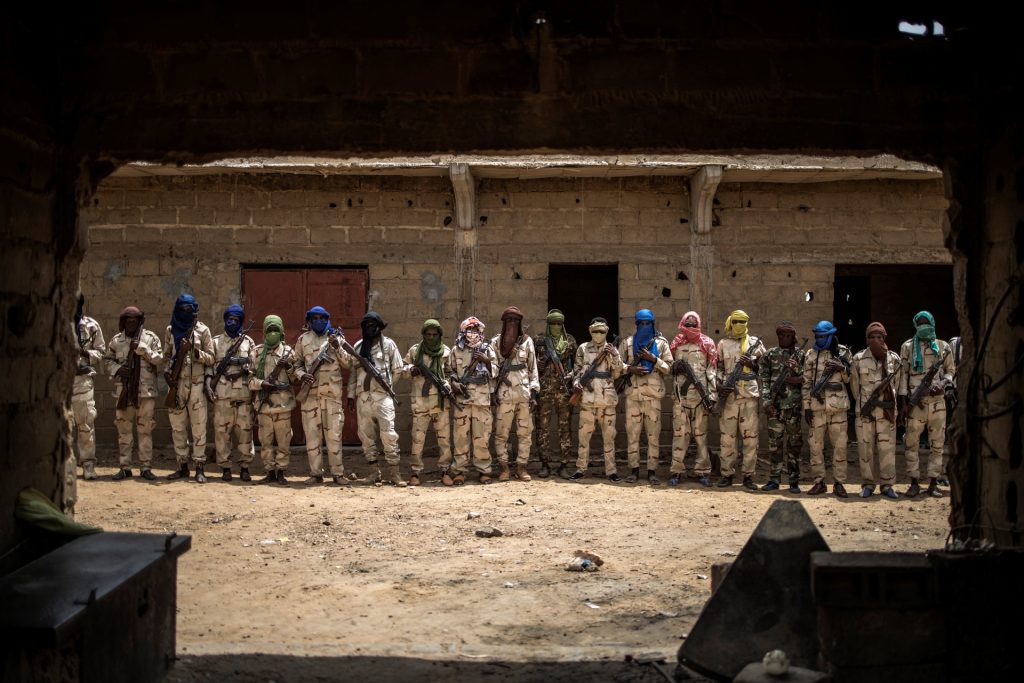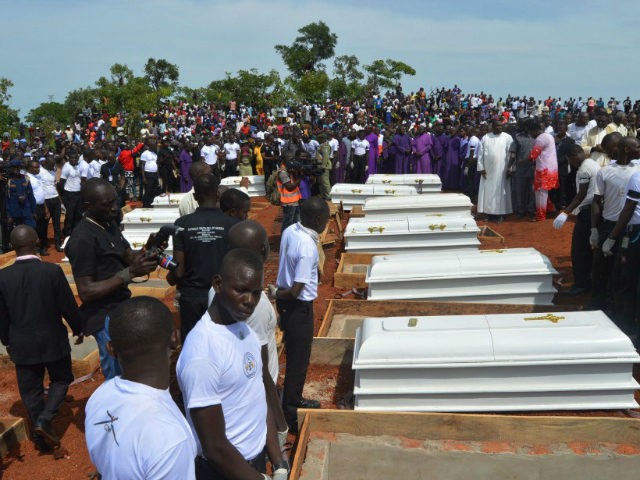Terrorists reportedly identified as “Fulani militia” stormed two villages in central Plateau state overnight Thursday, killing 21 people and making a mockery of government checkpoints set up after police received tips that local “bandits” were organizing an attack.
Nigerian media identified the affected areas as two villages in Heipang, Plateau, with a large population of internally displaced civilians. Plateau is part of Nigeria’s “Middle Belt” region that divides that Muslim-majority north from the Christian-majority south and has experienced years of radical jihadist attacks meant to eradicate the Christian population. The attackers are largely young men belonging to the majority-Muslim Fulani ethnic group; locals say they arrive on motorcycles or on horseback and steal locals’ homes and farmland by attacking with gunfire, machetes, and other weapons.

Fulani herdsmen at the main market at Kachia Grazing Reserve, Kaduna State, Nigeria, on April 18, 2019. (LUIS TATO/AFP via Getty Images)
Christian aid groups in the region have documented organized attempts to displace Christian populations, which are typically made up of members of smaller ethnic groups with no significant federal-level political power, and replace them with Muslims. The Catholic organization Aid to the Church in Need denounced in a report published in June that Fulani terrorists were attempting to “wipe away Christianity” from the Middle Belt, killing over 7,600 people between January 2021 and June 2022. The Nigerian government and some international actors such as the United Nations have described the situation as a conflict over land fueled by “climate change,” as the Fulani are typically herders while many Christians are farmers. Local Christians have viscerally rejected the dismissal of religious persecution as a factor in the attacks, however.
The incident in Heipeng reportedly occurred between 1 a.m. and 3 a.m. local time Thursday morning, though Nigerian government reports described the events as transpiring on “Thursday night.” Initial reports indicated that 17 people, mostly villagers who had already been displaced by similar violence from their original homes, were killed as Fulani terrorists opened fired on the community. Later reports identified four members of a local vigilante militia organized in light of the lack of police protection who also died in the attacks. Another 13 people were reportedly critically injured.

Graves of 17 worshippers and two priests, who were allegedly killed by Fulani herdsmen are watched by onlookers during a funeral service at Ayati-Ikpayongo in Gwer East district of Benue State, north-central Nigeria on May 22, 2018. (EMMY IBU/AFP via Getty Images)
“The Heipang community has lost more than 100 villagers in attacks over the past two decades, with no arrests,” the global aid organization International Christian Concern revealed on Thursday, citing local sources. “Villagers in Heipang and Mangu blame radicalized Fulani militants and herders for causing the attacks on the mostly Christian farming communities.”
Reports from Nigerian media appeared to agree that the assailants were Fulani terrorists, though they differed in their descriptions. The Premium Times described the attackers as “Fulani militia alongside bandits;” the Nigerian Guardian used the term “suspected Fulani militia.” This Day used the terms “gunmen” and “bandits” without elaborating.
Father Remigius Ihyula, a Catholic priest in neighboring Benue state, explained to Breitbart News in an interview in July that Nigerian media often obscure the identity of Fulani jihadist attackers out of fear of being targeted.

A group of Fulani militiamen pose for a picture with their weapons on July 6, 2019. (MARCO LONGARI/AFP via Getty Images)
“In fact, people were even warned not to say they are Fulani herdsmen who have been causing these atrocities such that when you open the general media they are talking about bandits — bandits or they say ‘unknown gunmen’ or things like that,” Father Ihyula explained, “so you read about bandits. It’s rubbish: they are Fulani men going about with cattle and with guns and killing people and the government won’t do anything about it.”
In this week’s attack, the government claimed to set up checkpoints early this week in response to threats to villages targeted, but the terrorists simply went around them.
“There was an early warning signal that some bandits could launch attacks, which prompted the operation to mount checkpoints in the area,” Nigerian Captain Ola James, a spokesman for the Special Task Force deployed to combat Fulani terrorism in the Middle Belt, told reporters following the attack, “But the bandits followed another route and attacked the community. We have deployed our men to restore law and order in the area.”
Plateau State Governor Caleb Mutfwang issued a statement of condolence following the attack and only vaguely acknowledged the military’s failure to aid local authorities in preventing the raids.
“The Governor appeals to security agencies to redouble their efforts and put an end to the senseless killings of innocent people in the rural communities of Mangu and Barkin-Ladi,” the governor’s statement read. “He emphasized the importance of peace and unity among all citizens, regardless of faith or ethnicity, for the development and growth of the state and expressed his sympathy to the affected communities and families of the deceased, assuring them of the government’s commitment to addressing the issues.”
Muslim groups not aligned with the Fulani also condemned the government. The Miyetti Allah Cattle Breeders Association of Nigeria (MACBAN) issued a statement distancing themselves from Thursday’s “barbaric” attack and stating explicitly, “we are blaming the security for not responding on time. This must be stopped.”

COMMENTS
Please let us know if you're having issues with commenting.